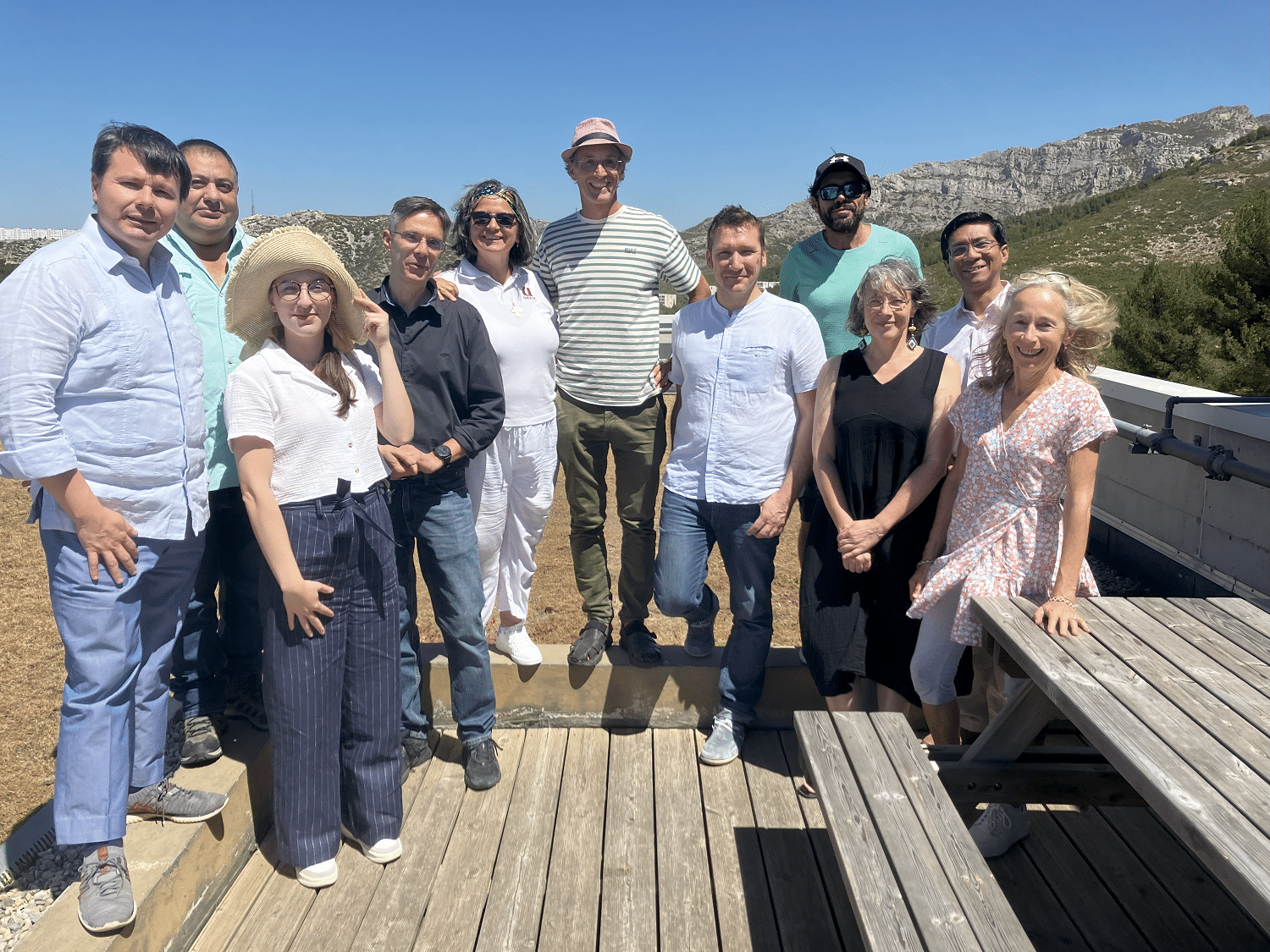The MIO received this 16 July 2025 a delegation of Ecuadorian scientists from theEscuela Superior Politécnica del Litoral (ESPOL) as part of a collective scientific assessment of mangroves.
Ecuador's economy is largely based on the exploitation of its marine and coastal resources, notably through ecotourism, small-scale and industrial fishing, and aquaculture, dominated by shrimp farming, the country's main export after oil. Mangroves are an essential habitat for many species exploited by local communities, particularly shellfish and crabs. However, these ecosystems are subject to multiple pressures, such as climate change (rising sea levels, warming and acidification of the oceans), the expansion of aquaculture, overfishing and illegal fishing.
Against this backdrop, a collective scientific assessment is being carried out by the IRD, funded by the European Union.AFD (Blue Carbon Facility)commissioned by the Ministry of the Environment, Water and Ecological Transition of the Republic of Ecuador (MAATE). Its aim is to draw up an inventory of scientific knowledge on mangroves, their socio-ecosystem dynamics and their carbon sequestration potential, in order to formulate operational recommendations for public authorities and stakeholders. The aim of this multidisciplinary project is to inform long-term strategic decisions, guide public policy and structure investment priorities for the preservation and sustainable management of mangroves.
Programme for the day
09:30- 12:30 - Visit to the Mediterranean Institute of Oceanology (MIO). Meeting with Dr Philippe Cuny, marine ecologist at the MIO, specialising in mangrove ecosystems.
12:30-14:00 - Lunch
14:00-16:00 - Talk by Laurence Goury, IRD documentalist, Salle Egée.
- Evaluation of available data and documentation, accessibility, needs assessment,
- Presentation of the Zotero tool (bibliographic corpus management) and training in its use,
- Open discussion.





